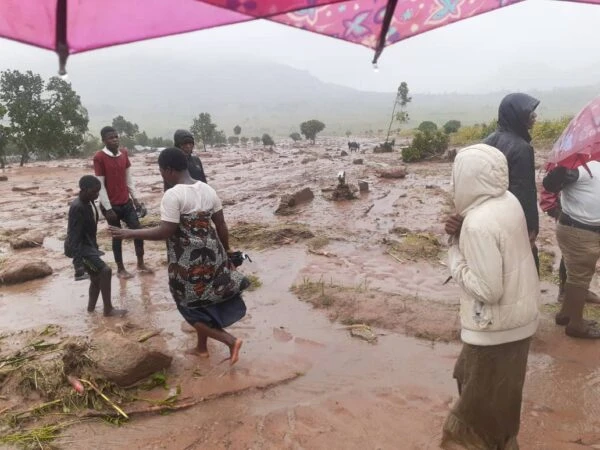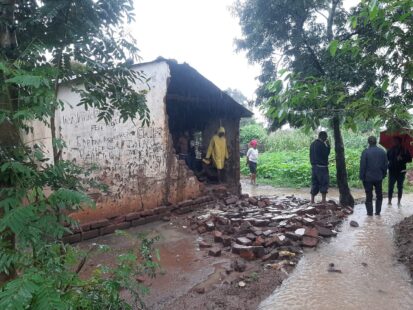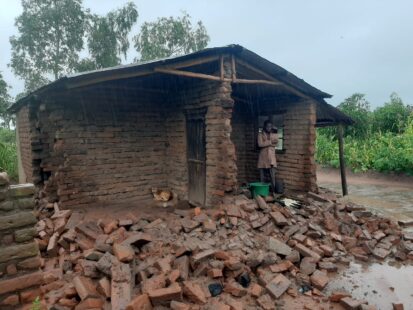
Hundreds of people have been killed after a tropical cyclone tore across southern Africa twice in a month.
Cyclone Freddy, which began as a storm, hit Mozambique for a second time on 12 March after causing severe destruction in Madagascar.
 Malawi has been hardest hit, with more than 470 people confirmed dead across 10 districts. The death toll is expected to rise as hundreds of people remain missing after Freddy first hit on 10 March.
Malawi has been hardest hit, with more than 470 people confirmed dead across 10 districts. The death toll is expected to rise as hundreds of people remain missing after Freddy first hit on 10 March.
More than 900 people have been injured and rescue efforts continue to save people trapped beneath the mud, while close to 500,000 people have been displaced by what is the worst tropical storm to hit Malawi in decades.
President Lazarus Chakwera has declared a state of emergency and called on local and international aid organisations to assist affected families, saying the government is overwhelmed with the magnitude of the disaster.
Widespread destruction
The cyclone has had a devastating effect on infrastructure, causing major damage to the electricity and water supply.
In some affected areas there is little to no water.
This shortage increases the risk of the spread of water borne diseases. Before the disaster, Malawi was already grappling with a deadly cholera outbreak, and it is expected that the situation will worsen.
Landslides have swept away roads and buried homes in the wake of the cyclone, damaging over 430 schools.
Cyclone Freddy could be the longest-lasting tropical cyclone on record, according to the World Meteorological Organization. It is one of the strongest storms ever recorded in the southern hemisphere and comes as climate change is increasing the intensity and frequency of tropical storms around the world.
“It was terrifying”
Christopher Malamba of Islamic Relief Malawi recalls visiting the first scene of one the most severely affected areas in Blantyre.
“It was terrifying. An entire village [Chilobwe in Blantyre district] with over 50 houses has vanished.
“People are believed to be buried under the rocks, and survivors are shivering when sharing their encounters. The effects of the cyclone have left men, women, the elderly and vulnerable households homeless.”
Many people have gathered in camps without any knowledge of their relatives’ whereabouts. Parents have been separated from their children, while others are still residing in the remains of their barely standing homes, all doing their best to survive.
The congestion in temporary camps is overwhelming. A school in Blantyre is providing shelter to over 1000 people but has only 2 toilets. Safe water is hard to find, while survivors are relying on inadequate food and poor bedding.
Christopher says the affected households are in dire need of food, “there is no way that they [the survivors] will be able to find food for themselves anytime soon. Their maize fields have been washed away. They do not have enough clothes, and most importantly, there’s [a long term] need to help them rebuild their houses.”
 Islamic Relief’s response
Islamic Relief’s response
Islamic Relief has been on the ground distributing food, clean drinking water, soap and other essential items since Cyclone Freddy first made landfall.
Our teams will continue to distribute aid to the worst-hit areas, such as Blantyre, Chiradzulu and Machinjiri, to provide hundreds of families with urgently needed food vouchers, mattresses, blankets, soap and kitchen utensils.
Islamic Relief has also liaised with the government to assess where our support is most urgently needed.
As our teams work to help those affected meet their basic needs, we are also assessing what long-term support we can offer to help families rebuild their lives.







